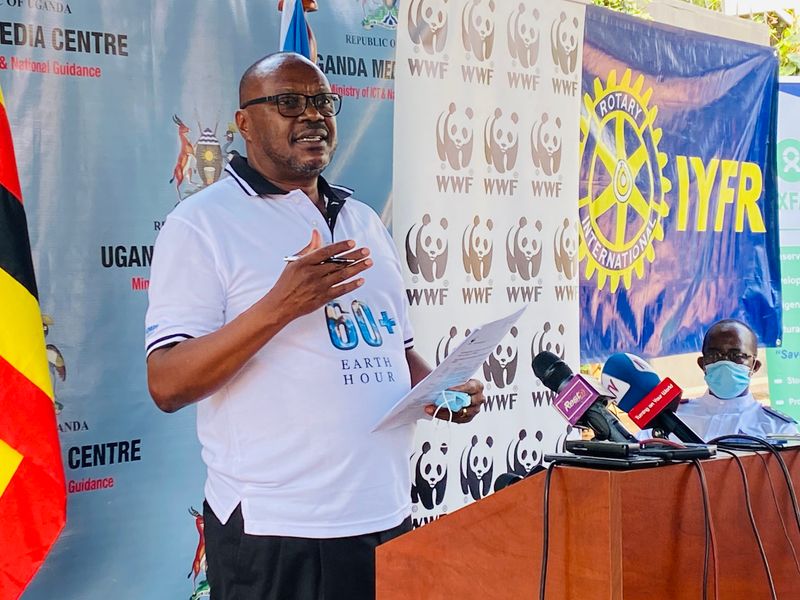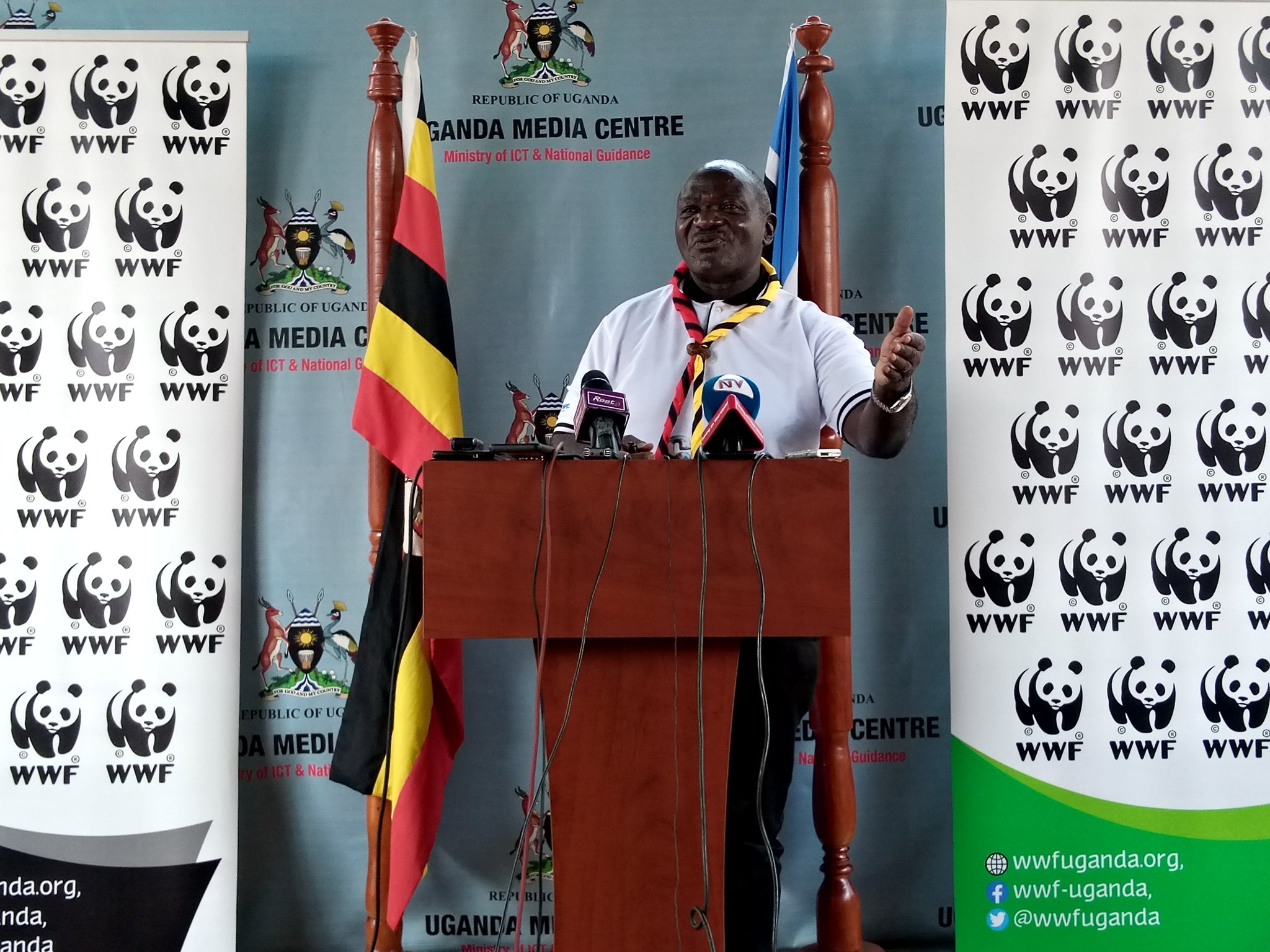

David Duli the WWF country Director speaking at the Uganda Media Centre
The government of Uganda, partners and other Social Formations like the Rotarians, Scouts, Go green Youth Networks have cautioned Ugandans on the continuous use and disposal for plastics which is choking the country.
The Country Director for WWF David Duli has said plastic pollution in Uganda has become one of the most alarming environmental issues as the country is being overburdened with the rapid increase in the production of in disposable plastic products.
He said plastic are low cost and long lasting which leads to high plastic production by humans, the chemical structure of plastics make them resistant to many natural processes of degradation as a result of which they are not easily degraded.
Water Bodies world over contain 300 Million tons of plastic and another 8 million plastic is added every year that’s a truck load of Plastic a minute, it is estimated that by 2050 if the curve does not bend, there may be more plastic in water bodies than fish.
The current rate of nature loss around the world stands to face the extinction of an estimated 1 million species within decades and significant declines of food and water supplies and many other services that nature provides to us every day.
The WWF Living planet report 2020, has found population sizes of wildlife decreased by 68% on average globally since 1970.
Duli said Plastic is a problem as it acts like a sponge, it soaks up other toxic chemicals and pollutant present in the environment and water bodies.
“Eventually when it breaks down, those chemicals and harmful substances get released into the environment along with additives such as color which turns out to be highly toxic, this eventually gets into the water we drink, the food we grow and the fish we eat,” he said.
Duli appreciate the fact that plastics are convenient but the danger in the throw away culture by the users discloses their dark side as the life span of many plastic products such as plastic bags, polythene and some bottles in the hands of the users is of mere minutes to hours they persist in the environment for hundreds of years.
The research done in 2018 by the world health organization showed that 90% of bottled water had micro plastics in it although the effect of micro plastics on human health is not yet known, scientists agree that as micro plastics hurt the health of other species , it can nit be good for human beings.
Duli said in addressing the problem, WWF is running a global campaign New Deal for Nature and People (ND4NP) to rally all stakeholders in taking actions to conserve nature.
He rallied the businesses in the plastic industry o invest more in production of reusable plastic bags and bottle but also join the campaign against plastic pollution by investing in recycling of plastic for produce.

Gen Katumba Wamala
The Minister for works and Transport, also the Commissioner for Scouts in Uganda, General Katumba Wamala, who was the chief guest at the Launch of the 2021 Earth hour campaign at the Uganda Media Center with an aim of delivering a message more pertinent than ever in raising awareness of the nature loss crises and climate change said, to secure the future of humanity, urgent decisive global action to bend the curve on devastating nature loss should be in place.
He asked Ugandans for the next 25 days as a build up to the Earth Hour, to join the scouts and WWF in their localities and clean up homes, roads, drainage channels, trading centers, and all use of plastic waste and also stop the throw away culture of plastics.
“We should not only procure plastic but reusable’s, plant trees and for the next 25 days let all unite as Ugandans across our political, tribal and social differences and take actions for nature recovery,” he said
The Earth Hour was launched in 2007 in Sydney Australia and has been running for years; this year’s theme is “keep it Green and Clean’.
Since 2018 WWF has been Building a bridge between the Earth Hours Movement’s strong roots in climate change campaigning and the need to create a new momentum for conserving and restoring nature.
In Uganda partnerships between the Buganda Kingdom, Church of Uganda and Scouts movement in Uganda among others have been made.














Muhamadi Byemboijana
Leave a Comment
Your email address will not be published.